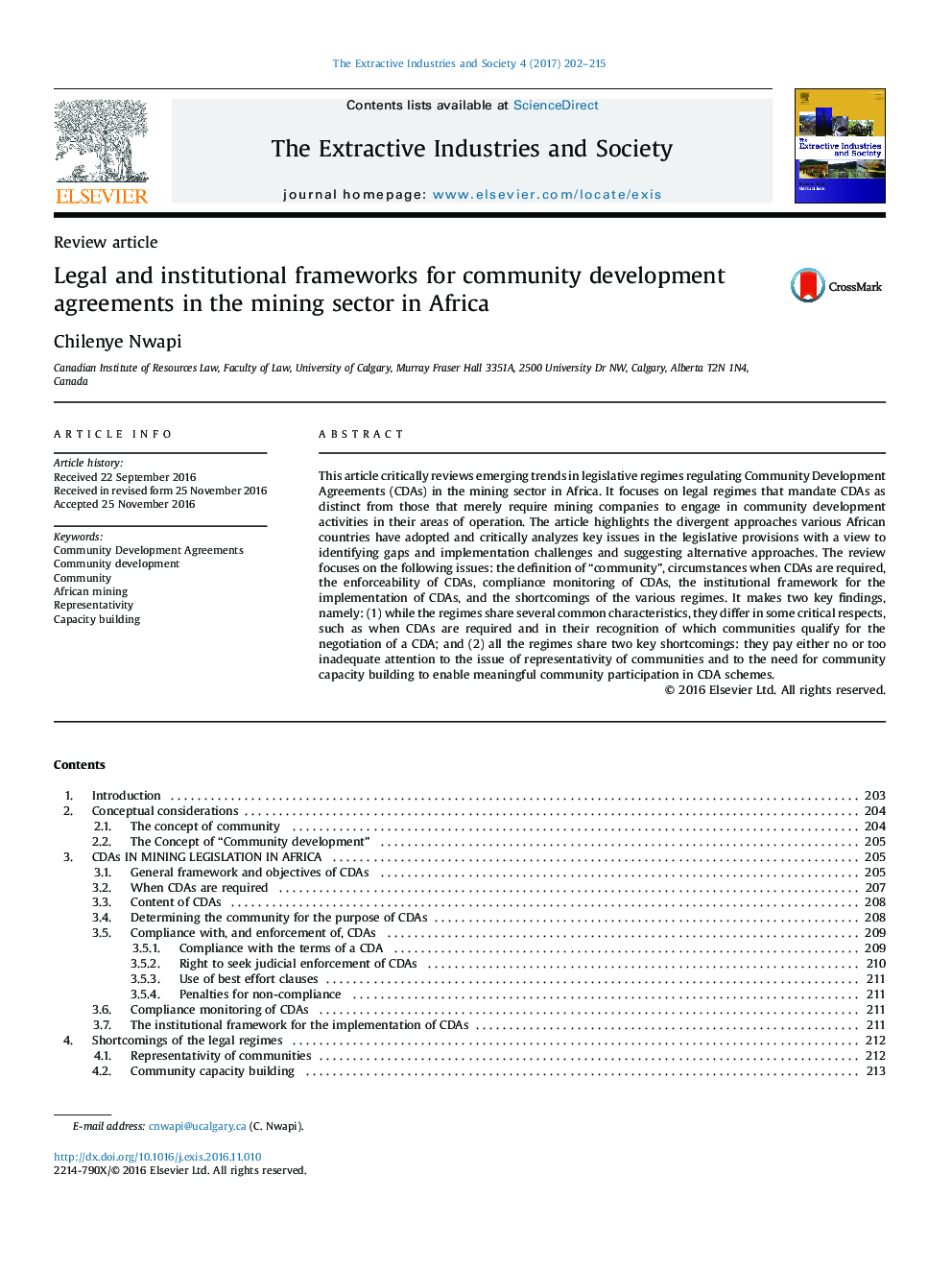| Article ID | Journal | Published Year | Pages | File Type |
|---|---|---|---|---|
| 5114462 | The Extractive Industries and Society | 2017 | 14 Pages |
â¢There are differences in the recognition of which communities qualify for CDAs.â¢The adoption of a size-based criteria for the requirement of CDAs is critiqued.â¢The representativity of communities in CDAs deserves greater attention.â¢Capacity building is indispensable for meaningful community participation in CDAs.
This article critically reviews emerging trends in legislative regimes regulating Community Development Agreements (CDAs) in the mining sector in Africa. It focuses on legal regimes that mandate CDAs as distinct from those that merely require mining companies to engage in community development activities in their areas of operation. The article highlights the divergent approaches various African countries have adopted and critically analyzes key issues in the legislative provisions with a view to identifying gaps and implementation challenges and suggesting alternative approaches. The review focuses on the following issues: the definition of “community”, circumstances when CDAs are required, the enforceability of CDAs, compliance monitoring of CDAs, the institutional framework for the implementation of CDAs, and the shortcomings of the various regimes. It makes two key findings, namely: (1) while the regimes share several common characteristics, they differ in some critical respects, such as when CDAs are required and in their recognition of which communities qualify for the negotiation of a CDA; and (2) all the regimes share two key shortcomings: they pay either no or too inadequate attention to the issue of representativity of communities and to the need for community capacity building to enable meaningful community participation in CDA schemes.
